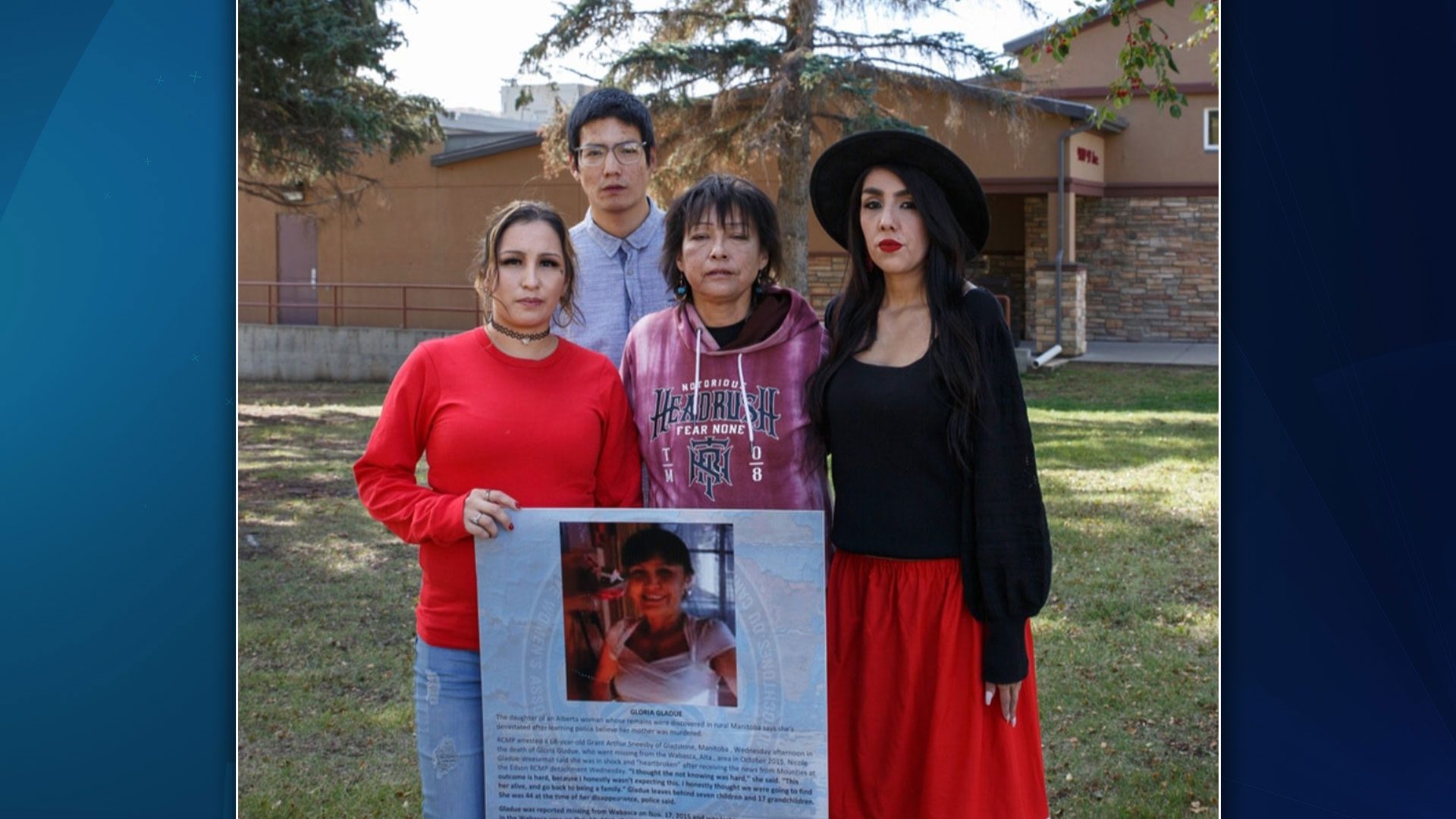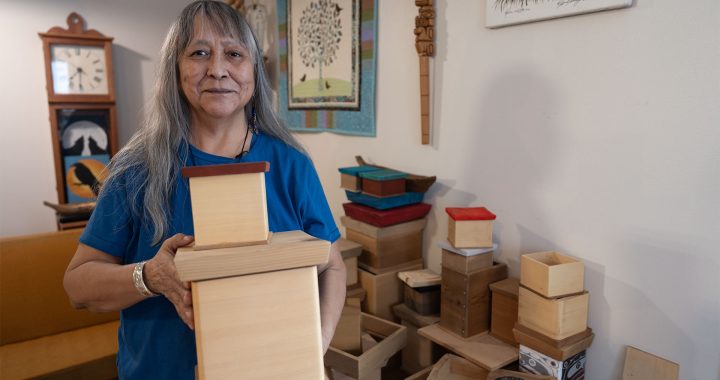
Gloria Gladue was stabbed to death by ex-trucker Grant Sneesby on Oct. 10, 2015 in northern Alberta. Photo: APTN file
The daughter of a Cree woman killed by a former trucker has finally cut off her long, dark braid, marking the end of the criminal phase of the tragedy.
Nicole Gladue Weesemat promised to honour her mother, Gloria Gladue of Bigstone Cree Nation in Alberta, by cutting off her hair when justice was served.
She made the vow in 2015 when her mother went missing, and did not cut her hair through the 2018 arrest, trial and conviction of Grant Sneesby, 72, of Gladstone, Man.
She had no idea it would take seven years to make good on the traditional tribute.
“I kept my hair long. I had a few little trims here and there but that was it,” she said.
Video of the Jan. 22 haircut went viral on TikTok, Gladue Weesemat said in a telephone interview from her home in Edson, Alta.
It took her husband a good minute to cut through her thick, black hair with a pair of scissors and hand over the braid to be placed on her mother’s grave.
Gladue Weesemat said the disappearance of her mom, 44, and then Sneesby’s trial was an agonizing experience.
The reception in the courtroom didn’t help.
“We couldn’t wear our MMIWG (missing and murdered Indigenous women and girls) clothing in the (Peace River, Alta.) courtroom,” she said, noting only traditional ribbon skirts and red t-shirts were allowed by Court of King’s Bench Justice Paul Belzil.
“My aunt had a red handprint (painted) on her jacket and he made her take (the jacket) off.”

Belzil heard that Sneesby stabbed Gladue to death in his Wabasca-Desmarais home and hid her body for three years in various rural locations, including the area outside Gladstone, Man., where it was ultimately discovered and he is originally from.
Sneesby was initially charged with second-degree murder and causing an indignity to a body. He was convicted in May 2022 by a jury on the lesser charge of manslaughter and sentenced to 11 years in prison.
With credit for pre-trial time served, Gladue Weesemat said Sneesby’s sentence amounts to 3 ½ years.
Sneesby claimed he was defending himself from Gladue, whom he said attacked him with a knife. They were the only ones in the home at the time he stabbed her between two and 12 times, court heard.
Her mother
The way her mother – the victim – and her past were described in the courtroom upset Gladue Weesemat, who is now a staunch advocate for MMIWG. It’s a negative attitude the National Inquiry into Missing and Murdered Indigenous Women and Girls (2016-2018) targeted for change in its final report.
“I was shocked when they talked about her old conviction,” said Gladue Weesemat. “What did that have to do with her murder?”
The inquiry examined the root causes of ongoing violence against Indigenous women and, among other recommendations, said institutions like the courts should “confront and eliminate” racism, sexism, homophobia and transphobia to “end racist and sexualized stereotypes of Indigenous women, girls and 2SLGBTQ+ people.
“The plan must target the general public as well as public services,” it said.
Meanwhile, the video of cutting the braid has earned praise on Tik Tok – something that has warmed the heart of Gladue Weesemat while she grieves.
“The families of missing and murdered Indigenous women need support,” she said. “I thank everyone for their kindness.”










